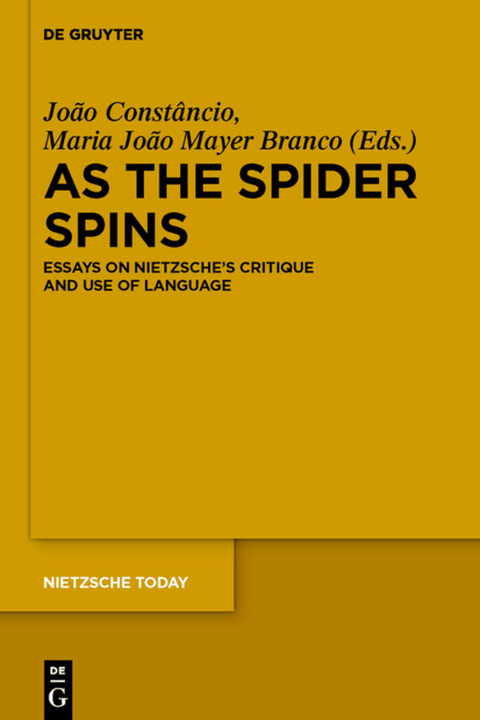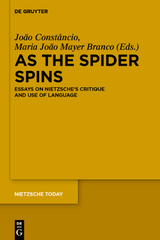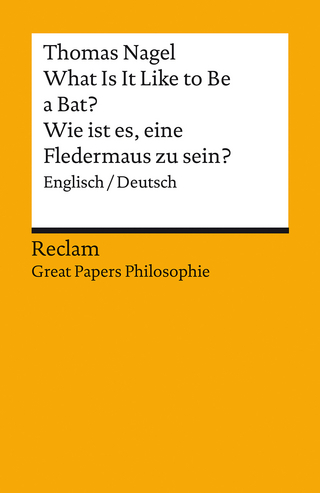As the Spider Spins
Essays on Nietzsche’s Critique and Use of Language
Seiten
Diese neue Reihe bietet themenbezogene Artikelsammlungen zu Nietzsches Philosophie. Der Schwerpunkt liegt auf herausragenden Beiträgen, die aktuelle Debatten innerhalb der Nietzsche-Forschung zur Sprache bringen und Nietzsches Bedeutung für gegenwärtige philosophische Fragestellungen erörtern. Die Bände sind peer-reviewed.
Nietzsche's metaphor of the spider that spins its cobweb expresses his critique of the metaphysical use of language - but it also suggests that ‟we, spiders‟, are able to spin different, life-affirming, healthier, non-metaphysical cobwebs. This book is a collection of 12 essays that focus not only on Nietzsche's critique of the metaphysical assumptions of language, but also on his effort to use language in a different way, i.e., to create a ‟new language‟. It is from this viewpoint that the book considers such themes as consciousness, the self, metaphor, instinct, affectivity, style, morality, truth, and knowledge.The authors invited to contribute to this volume are Nietzsche scholars who belong to some of the most important research centers of the European Nietzsche-Research: Centro Colli-Montinari (Italy), GIRN (Europhilosphie), SEDEN (Spain), Greifswald Research Group (Germany), NIL (Portugal). In 2011 João Constâncio and Maria João Mayer Branco edited Nietzsche on Instinct and Language, also published by Walter de Gruyter. The two books complement each other.
Nietzsche's metaphor of the spider that spins its cobweb expresses his critique of the metaphysical use of language - but it also suggests that ‟we, spiders‟, are able to spin different, life-affirming, healthier, non-metaphysical cobwebs. This book is a collection of 12 essays that focus not only on Nietzsche's critique of the metaphysical assumptions of language, but also on his effort to use language in a different way, i.e., to create a ‟new language‟. It is from this viewpoint that the book considers such themes as consciousness, the self, metaphor, instinct, affectivity, style, morality, truth, and knowledge.The authors invited to contribute to this volume are Nietzsche scholars who belong to some of the most important research centers of the European Nietzsche-Research: Centro Colli-Montinari (Italy), GIRN (Europhilosphie), SEDEN (Spain), Greifswald Research Group (Germany), NIL (Portugal). In 2011 João Constâncio and Maria João Mayer Branco edited Nietzsche on Instinct and Language, also published by Walter de Gruyter. The two books complement each other.
João Constâncio and Maria João Mayer Branco, New University of Lisbon, Portugal.
| Erscheint lt. Verlag | 14.6.2012 |
|---|---|
| Reihe/Serie | Nietzsche Today ; (2) |
| Verlagsort | Berlin/Boston |
| Sprache | englisch |
| Maße | 155 x 230 mm |
| Gewicht | 599 g |
| Themenwelt | Geisteswissenschaften ► Philosophie ► Philosophie der Neuzeit |
| Geisteswissenschaften ► Philosophie ► Sprachphilosophie | |
| Schlagworte | Affectivity • Affektivität • Bewusstsein • Consciousness and the Self • language • Language, Consciousness and the Self, Philosophy, • Language, Consciousness and the Self, Philosophy, Style, Affectivity • Nietzsche, Friedrich • Philosophy • Selbstbewusstsein • Sprache • Stil • Style |
| ISBN-10 | 3-11-028090-6 / 3110280906 |
| ISBN-13 | 978-3-11-028090-6 / 9783110280906 |
| Zustand | Neuware |
| Informationen gemäß Produktsicherheitsverordnung (GPSR) | |
| Haben Sie eine Frage zum Produkt? |
Mehr entdecken
aus dem Bereich
aus dem Bereich




